Perfmatters WordPress Plugin
WordPress sites that load slowly have greater bounce rates and fewer conversions overall. Your website will load much more quickly after having web performance experts develop the Perfmatters plugin for it.
Features
The Perfmatters plugin was created with simplicity in mind. We all make use of these improvements on our own websites, so we’re happy to provide you a simple option to do the same! Do not tinker with your functions.php file or the code. Everything may be activated or disabled with a single click since performance improvements shouldn’t be difficult.
By turning off scripts that might not be utilised on your site, this plugin primarily contributes to site speedup. Emojis, for instance, automatically load on each page of your website. If you don’t utilise them, all this does is make things go more slowly. The script is disabled so that fewer HTTP requests are made overall and fewer requests are made to load the page.
The optimization of our database is another useful aspect. Revisions, auto-drafts, spam comments, and transients start to load up your database over time, and before you realise it, the speed of your site is being impacted. You can quickly remove all of these using Perfmatters and even set limitations to stop it from occuring again. This guarantees a quick and responsive database.
Quick-toggle options
Toggling on a lot of the Perfmatter’s choices will apply them. Here are a few that we suggest using in brief:
Disable embeds, dashicons, and emojis
Disable unused scripts and assets, such as emojis, embeds, dash symbols, and other items that you might not be utilising on your website.
Limit the amount of post revisions that WordPress keeps by turning them off or doing it yourself to prevent an unmanageable database growth.
Autosave interval change
Alter your autosave interval to keep fewer draughts. Additionally, the obnoxious “there is a more recent version” alert is less frequent.
Turn off and adjust the Heartbeat API
Heartbeat might result in excessive AJAX requests and significant CPU consumption. Heartbeat may be turned off, and the frequency can be altered.
Disable links and comments# No blog? Remove author comment links to dissuade anyone from simply attempting to obtain a backlink, or disable comments on the entire site to minimise spam.
Turn off Google Maps
The performance of your website might be severely impacted by Google Maps. You may selectively turn off Google Maps and just load it when you need it.
Disable AJAX-based WooCommerce cart fragments
On WooCommerce sites, the wc-ajax=get refreshed fragments request might result in significant delays. Turn off cart shards on your website.
Script Manager
A capable Script Manager is already included with the Perfmatters plugin. With just one click, you may do this to deactivate scripts for individual posts or pages or your entire website. You can simply check which scripts are being used by what since all scripts are categorised according to the plugin and theme they belong to. Additionally, you may deactivate scripts based on the device (desktop or mobile) and whether you are signed in or out. This is really effective and may significantly speed up your WordPress blogs (especially your homepage).
Several applications for this are listed below.
- Every page and post automatically loads the well-known Contact Form 7 plugin. With just one click, you can quickly disable it everywhere and just allow access to your contact page.
- Only your posts should have social media sharing plugins. You may simply load it solely on post types or even custom post kinds by disabling it anywhere else.
Database optimization
When it comes to maintaining your website in good shape and functioning quickly, optimising your WordPress database is crucial. Things like these have a simple way of adding up to hundreds of thousands of rows over time. This has happened more times than we can count. Regular database maintenance is just as important as oiling and maintaining your automobile.
- You may quickly purge and eliminate unnecessary and outdated data with the Perfmatters plugin. Here are a few examples:
- Delete changes (posts, pages, and custom post types).
- When updating material, old auto-drafts that have been saved are deleted.
- Remove all spam comments from WordPress at once.
- Delete the spam from your articles and comments.
- You should purge expired transients from your wp options table.
- Make your database tables more efficient to recover unnecessary space.
Additionally, you may schedule automated database optimization to run every day, every week, or every month and store your settings for later use. This is excellent news for those of you who have clients or are too busy to do routine maintenance.
Lazy loading
Lazy loading basically means waiting till a user scrolls down the page before letting pictures, videos, or iframes load (they enter the viewport). This is crucial to do for articles and pages with plenty of photos or videos since it will cut down on the initial wave of requests. In our experiments, load times have been decreased by 33%. It is quicker than WordPress’ native slow default loading.
If you aren’t already lazy loading, you ought to be. Here are a few features of the Perfmatters plugin for lazy loading:
- pictures that load slowly, iframes, movies, and inline and CSS background images (YouTube, Vimeo, Google Maps, etc.).
- Replace the iframes with a thumbnail preview and an SVG play icon that launches the video when clicked. The quickest method for loading YouTube videos is this.
- WebP assistance.
- Adjust the viewport threshold to be more or less aggressive.
- Automatically prevent lazy loading of leading pictures.
- DOM tracking for improved compatibility with infinite scroll.
- Cumulative Layout Shift may be fixed by giving pictures the width and height attributes that are lacking (CLS).
- the loading of photos should have a fade-in effect.
Change your WordPress login URL
Sometimes even the slightest adjustments may have a significant effect. WordPress’s default login URL is https://yourdomain.com/wp-admin/. The issue with this is that while hunting for vulnerabilities and entry points into your website, bots, hackers, etc. all scan for these. We’ve worked with a lot of websites that have 10,000 or more unsuccessful attempts to obtain access each day.
You may avoid this by simply changing your WordPress login URL to a less obvious one. Additionally, it improves performance by reducing bot scraping of popular portions of your website.
In only a few seconds, the Perfmatters plugin will let you modify your login URL.
CDN rewrite
By storing your assets on many servers (POPs) across the world and delivering them locally from cache, a content delivery network (CDN) can speed up your WordPress site. Your WordPress site may be connected to a CDN with the aid of the Perfmatters plugin.
Perfmatter’s CDN rewrite has the following characteristics:
- When you provide your CDN URL, all of your assets, including photos and other files, are rebuilt to link to it.
- Which WordPress directories you choose to include is entirely up to you.
- Exclude from rewriting certain file types and even assets that contain strings.
Host Google Analytics locally
By lowering the number of additional DNS lookups and fixing the “leverage browser caching” problem from their script, hosting Google Analytics locally can make your site load faster.
Ironically, Google’s script issues a caching warning, but this is because their HTTP caching header expiration is set to a very short time frame. Your own CDN or server’s HTTP caching headers will be used if you host it yourself. In other words, you have complete control over how the script is cached.
The features of Perfmatters’ Google Analytics include:
- There are five different script types to choose from: analytics.js (17 KB), gtag.js, gtag.js v4, minimal (just 1.5 KB), and minimal inline.
- You can move the tracking code to your website’s header or footer.
For the sake of data privacy and the GDPR, anonymize your IP. - Decide whether to track administrators who are logged in.
- Transitioning to Google Analytics 4 with a dual tracking option
- Turn off the display features. A second HTTP request is avoided as a result.
- To more accurately assess the quality of your visitors, reduce the bounce rate on your website.
- Utilization of a locally hosted script while integrating MonsterInsights for extra analytics features.
Add code to header, body, footer
You might occasionally need to add unique code to the header (head), body, or footer of your WordPress website. You may quickly incorporate custom code wherever you need it by using the Perfmatters plugin.
Included in the header, body, and footer code functionality are:
- Direct front-end printing of code is acceptable. Inline JS or CSS within style> or script> tags may be examples of this.
- A CSS or JS file can be loaded.
- Code uploaded to the header will appear in your website’s head> and /head> sections.
- Code uploaded to the body will appear on your website below the opening body> tag.
- Code supplied to the footer will appear on your website above the closing /body> element.
Preloading resources
The loading of scripts and resources on your WordPress site may be sped up by preloading utilising rel attributes. When appropriate, Google will even recommend them. These features are simple to apply to your entire website, particular pages, or devices (desktop or mobile).
- After a user hovers over a link, Instant Page enables you to immediately prefetch URLs in the background. As a result, load times are nearly immediate.
- Preload enables you to define the fonts or CSS that a page will immediately require when it loads. By doing this, render-blocking resource warnings are fixed.
- Preload key photos automatically to reduce the use of the Most Contenful Paint (LCP).
- Performance may be enhanced by using DNS prefetch, which enables you to resolve domain names (do a DNS query in the background) before a user clicks on a link.
- By establishing early connections prior to an HTTP request, preconnect enables the browser to reduce round-trip latency and save users’ time.
Defer and delay JavaScript
Are you familiar with the warning to “Eliminate render-blocking resources”? This indicates that JavaScript is delaying (blocking) the initial page load of your WordPress website. Deferring JavaScript is a simple approach to speed up website rendering, as Google suggests. Delaying the usage of JavaScript until user engagement is another effective strategy. With the Perfmatters plugin, both are possible.
- All of your JavaScript files should use defer tags. The scripts will thus load after the rest of the page.
- Delay using JavaScript inline.
- postpone jQuery core (optional).
- Add filename, path, or string exclusions for JavaScript deferral.
- In the WordPress editor, add JavaScript deferral exclusions for each individual page or post.
- JavaScript must wait till the user interacts (scrolling, moving mouse, etc.). This works well with WooCommerce cart inconsistencies and demanding third-party scripts like Google Tag Manager, Google Analytics, Facebook pixel, Google Adsense, and others.
- You may quickly alter the delay behaviour to delay only the scripts you specify or all scripts.
- Set a timeout so that scripts will load after a specific period of time.
Remove unused CSS New
When you have code being loaded by a plugin or your theme that isn’t needed or utilised on a page, PageSpeed Insights will provide the minimise unnecessary CSS warning. Typically, stylesheets are only enqueued by developers when they are in use. However, other styles that might not be necessary are frequently also included. As a result, your WordPress site will load slowly and include a lot of unnecessary CSS. Additionally, render-blocking warnings may be triggered. With Perfmatters, you can automatically delete unneeded CSS.
- There are two ways to delete unnecessary CSS: file and inline.
- Delay, async, and delete were the three initial stylesheet behaviours.
- Create exclusions for CSS stylesheets using file names, paths, or strings.
- With the element ID or class name, add CSS selector exclusions.
- In the WordPress editor, add unused CSS exclusions for every individual page or post.
- options for generally and for each individual page/post deleting CSS.
- Reduce the number of content pieces (FCP), the size of the content pieces (LCP), and the interaction time (TTI).
Host Google Fonts locally
All browsers, including Chrome, have switched to HTTP cache partitioning. As a result, Google Fonts are now downloaded again for every page, regardless of whether a user’s browser has already cached it. Hosting your Google Fonts locally (or on your CDN) with Perfmatters is hence quicker.
- Automate the local copying of Google Fonts to your WordPress website.
- Eliminate current third-party DNS lookups to Google and utilise your own caching expiration headers instead. It is superior in terms of privacy issues as well.
- To hasten font loading, avoid render-blocking, and eliminate “Reduce the effect of third-party code” warnings, turn on display swap.
- Utilize your CDN to load Google Fonts.
Example sites using Perfmatters
Here are a few instances of Perfmatters-enhanced WordPress sites that load quickly. It’s crucial to keep in mind that the plugin isn’t a magic wand that will correct all of the issues. Your site should still be optimised, and the Perfmatters plugin can make it run faster yet. Consider looking at our performance check list.
Core Web Vitals and reducing load time by every millisecond are at the centre of all we do. Keep in mind that Google primarily examines how your website and code load on mobile devices. First Contentful Paint (FCP), Largest Contentful Paint (FCP), Total Blocking Time, and Cumulative Layout Shifts are some examples of this (CLS). Additionally crucial is perceived performance, or how quickly your website feels.
Multisite support
a large number of WordPress websites? No issue. WordPress multisite configurations are supported under the Perfmatters unlimited licence. This makes it simple for you to distribute settings from your network’s default site to its subsites.
The following attributes are present in multisite setups:
- The network administrator should network enable the plugin and activate your licence.
- Different levels of network access might be given, such as Site Admins or Super Admins alone.
- Push your preset settings as soon as possible to your other subsites from your primary network site.
Support and ongoing development
Like the rest of you, we also utilise third-party plugins, and poor support is the worst. We will never outsource this because of that. With Perfmatters, you may obtain assistance directly from the plugin’s creators. We have been regularly using WordPress for more than 19 years.
We work on creating plugins full-time; it’s not simply a side interest for us. We keep rolling out new features and squashing bugs. We continuously test our plugins on the most recent WordPress releases.
Additionally, we think that thorough documentation helps everyone save time. Because of this, we have over 100 detailed documents on how to use and customise Perfmatters.
We value your opinions much since it helps us develop. We would be happy to hear any ideas or suggestions you may have. Check out the Perfmatters changelog and our current feature requests.

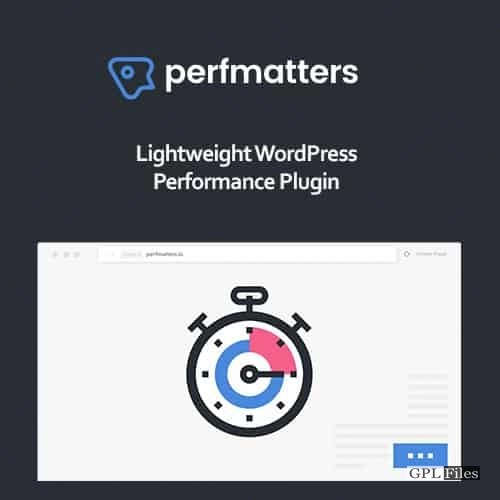

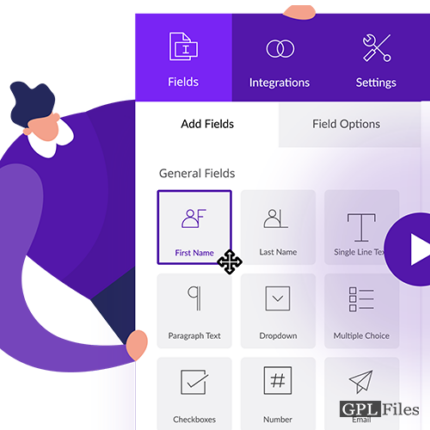
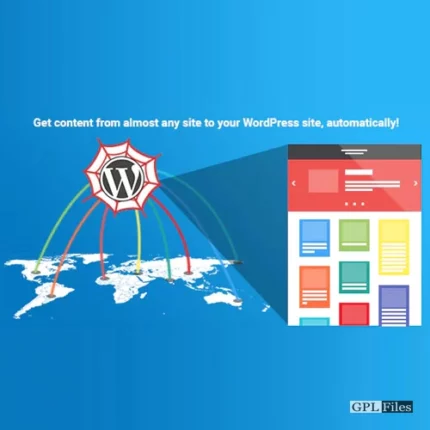



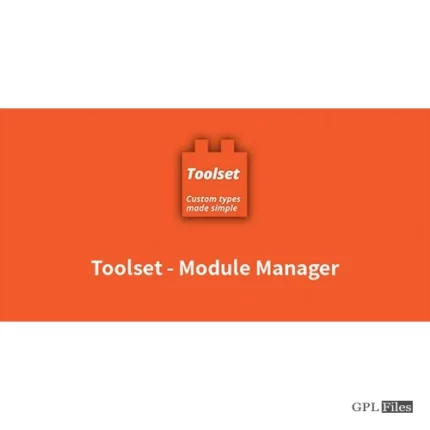

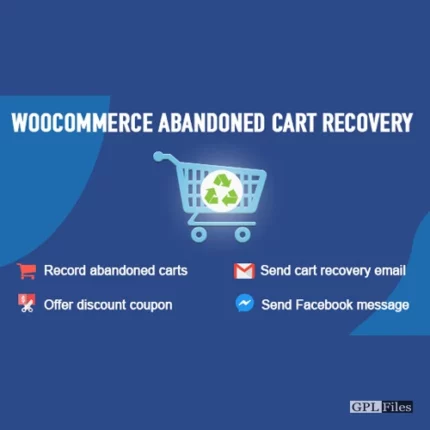
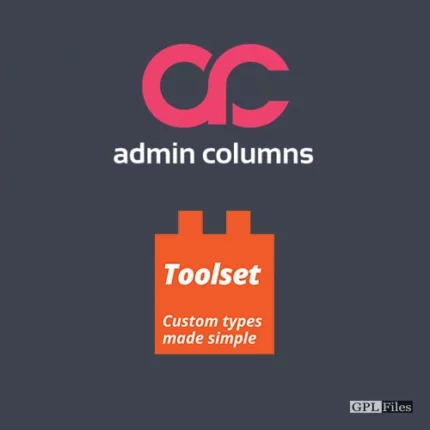




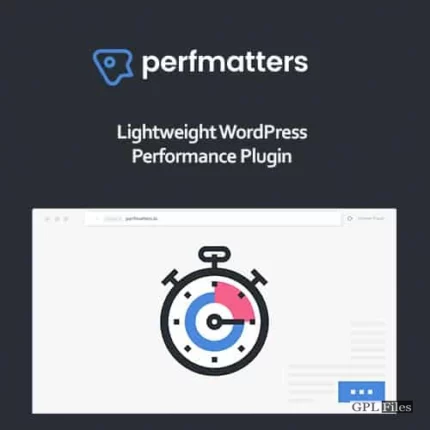
Reviews
There are no reviews yet.